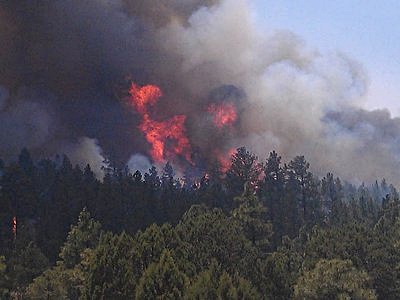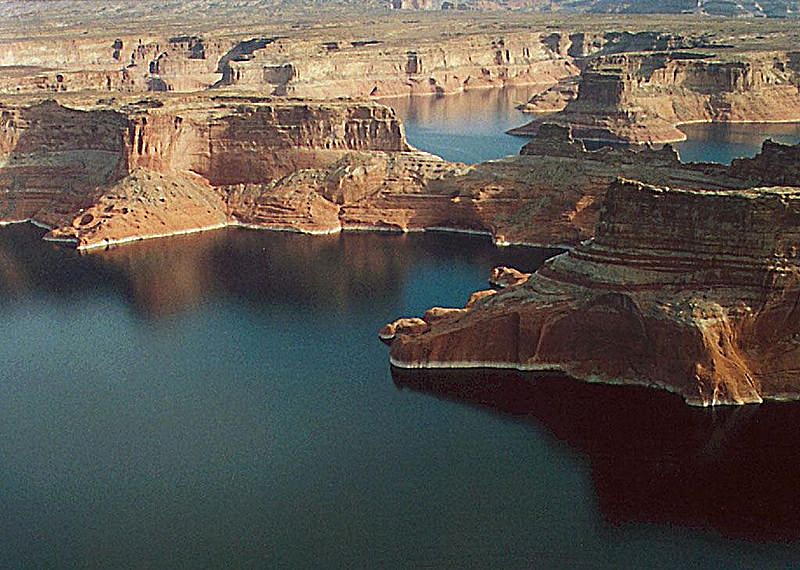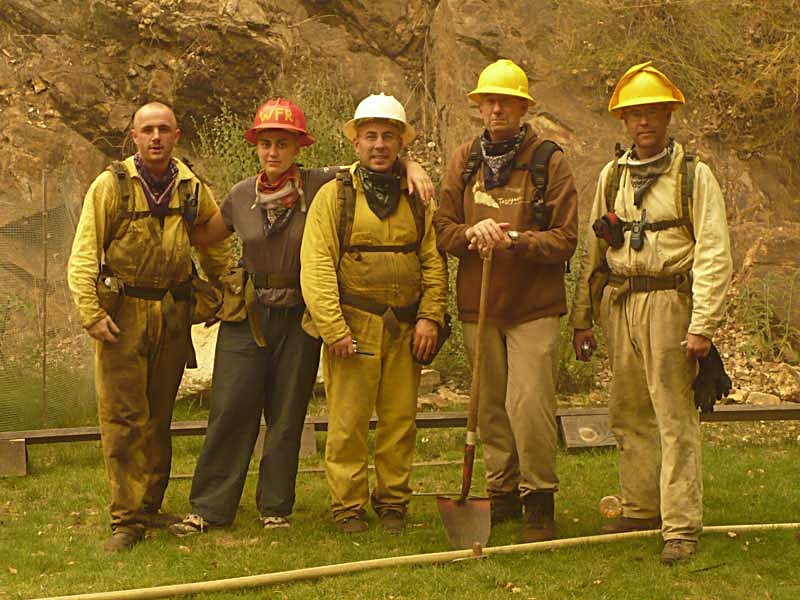Dry and Disputed
 Saturday, June 16, 2012 at 10:21PM
Saturday, June 16, 2012 at 10:21PM  Oakland-Berkeley hills fire on October 20, 1991Wildfires are raging across the American West. By the end of this summer millions of acres and thousands of homes will go up in smoke, not to mention many resident and firefighter deaths. In much of the West there are only two seasons, wet (winter) and dry (the rest of the year.) Here in California we won’t see any more rain until November. Fire season began in May, and we are already on high fire alert.
Oakland-Berkeley hills fire on October 20, 1991Wildfires are raging across the American West. By the end of this summer millions of acres and thousands of homes will go up in smoke, not to mention many resident and firefighter deaths. In much of the West there are only two seasons, wet (winter) and dry (the rest of the year.) Here in California we won’t see any more rain until November. Fire season began in May, and we are already on high fire alert.
Some years it doesn’t rain much during the winter either, so with dry grassy hills and low reservoirs, we get dire predictions of a bad fire season. But even when, like this year, we’ve had a nice rainy winter, we get those same dire predictions, because of all the extra undergrowth and brush. Every year they say, get ready for fire; we can’t win.
In the past few decades we’ve had some really bad urban fires, Oakland in 1991, San Diego 2007, many deaths, thousands of homes destroyed, fires visible from space. Both conflagrations were in October, after long dry summers. They lasted days and days, exacerbated by off shore winds and the close proximity of urban and wilderness areas.
Fire touches most of our lives in some way; many of us have a memory of a neighbor’s house burning down, or an alert adult grabbing the fire extinguisher in the kitchen, or days of threatening smoke in the sky and in our noses as a nearby wildfire burns out of control. My earliest childhood memory, as a three year old, is of a forest fire in a dry pine forest in Maine. I remember the crackling trees, the rush to the car, and my mother’s face; scared but trying not to show it to her kids. We escaped, but a neighbor lost her house.
Wildfires in the American West sort of mimic the American West itself: both are big, out of control, where massive rural and wilderness areas butt up to sprawling urban areas, acres of diseased and dead trees (from climate change, drought, insects, or all of the above), limited water, steep terrain, fierce winds, not enough firefighters, overlapping or contradictory state and federal agency jurisdictions. That’s the American West: big, rough, dry and disputed.
Dry and disputed: water and land use policy. Fires remind us of these huge issues facing the West.
Western land use politics is all about water. There’s not enough of it. Agriculture, fishing, dams, canals, development, energy – it all comes down to water. That’s a whole other column, about water politics. But when fire shows up, the land succumbs easily. Open and dry, much of the land in the West actually needs fire; fire germinates seeds, enriches land, and smaller more frequent fires prevent larger more dangerous ones. Since earliest times humans have not suppressed fire but rather set small controlled burns for the benefit of the land. But just as the West seems to be losing any control over the stresses of population and development, so huge fires now often rage out of control in the dry and stressed landscape.
Historically, something like only 2% of Western land had easy access to water, before widespread irrigation and development in the last century. John Wesley Powell, who in 1869 was the first to lead an expedition down the Colorado River and the Grand Canyon, tried later to convince Congress, when he became head of the US Geological Survey, to limit agriculture in the West, because of water issues. Instead of the standard 40 acre, square land grants, he advocated large land grants and regional boundaries defined by watersheds, instead of arbitrary land rectangles, and encouraged conservation and low impact grazing. But the railroads, who wielded incredible power in the development of the West, wanted settlers, and towns, which meant agriculture. Money and power and politics form the battlefield for the very limited water of the West.
 Lake PowellI learned about Powell’s failed efforts for a fair and rational Western water policy in a book about him, Beyond the 100th Meridian by Wallace Stegner, often called the “Dean of US Western Writers,” a novelist and environmentalist who likewise advocated for land and water stewardship. Stegner, like his soul brothers John Muir and David Brower, was active in the Sierra Club, the national conservation organization founded by Muir in the West. A water fight they did win was to stop the 1966 proposed damming of the Grand Canyon to provide more water for the West, especially Los Angeles. When dam supporters said the lake would help tourists get closer to the canyon walls, Stegner and others asked “Should we also flood the Sistine Chapel so tourists can get closer to the ceiling?” Powell would detest the fact that a stretch of the Colorado River near the Grand Canyon actually was finally dammed and the huge lake named after him.
Lake PowellI learned about Powell’s failed efforts for a fair and rational Western water policy in a book about him, Beyond the 100th Meridian by Wallace Stegner, often called the “Dean of US Western Writers,” a novelist and environmentalist who likewise advocated for land and water stewardship. Stegner, like his soul brothers John Muir and David Brower, was active in the Sierra Club, the national conservation organization founded by Muir in the West. A water fight they did win was to stop the 1966 proposed damming of the Grand Canyon to provide more water for the West, especially Los Angeles. When dam supporters said the lake would help tourists get closer to the canyon walls, Stegner and others asked “Should we also flood the Sistine Chapel so tourists can get closer to the ceiling?” Powell would detest the fact that a stretch of the Colorado River near the Grand Canyon actually was finally dammed and the huge lake named after him.
I found Stegner’s great book in the National Park bookstore at Bryce Canyon in Utah, on a road trip with my about-to-go-college daughter to the Grand Canyon, as well as Bryce and Zion National Parks in Utah. As we drove and camped and hiked through California, Arizona, Utah and Nevada, we saw lots of land, a few fires, and not much water.
 Graham Ross, Mako Voelkel, David Zimmerman, Steve Stücky, and Colin Gipson—“the Tassajara Five”—posed for this portrait after facing the flames for six straight hours. Photo by Mako VoelkelI read another great book about fire and water this past week. Probably deserves its own column also. Fire Monks is the true tale of the Tassajara Zen Monastery in the Big Sur Wilderness and how in 2008, when a wildfire burned over 150,000 acres, and raged through the monastery lands, five monks refused to evacuate and used their Buddhist training, mindfulness, flexibility and some fire smarts to save the place. I’ll just have to end with the cool picture of the five fire monks (do look at all the pictures).
Graham Ross, Mako Voelkel, David Zimmerman, Steve Stücky, and Colin Gipson—“the Tassajara Five”—posed for this portrait after facing the flames for six straight hours. Photo by Mako VoelkelI read another great book about fire and water this past week. Probably deserves its own column also. Fire Monks is the true tale of the Tassajara Zen Monastery in the Big Sur Wilderness and how in 2008, when a wildfire burned over 150,000 acres, and raged through the monastery lands, five monks refused to evacuate and used their Buddhist training, mindfulness, flexibility and some fire smarts to save the place. I’ll just have to end with the cool picture of the five fire monks (do look at all the pictures).
Clear the brush around your house! And watch out for fire!
Copyright © 2012 Deborah Streeter
Reader Comments